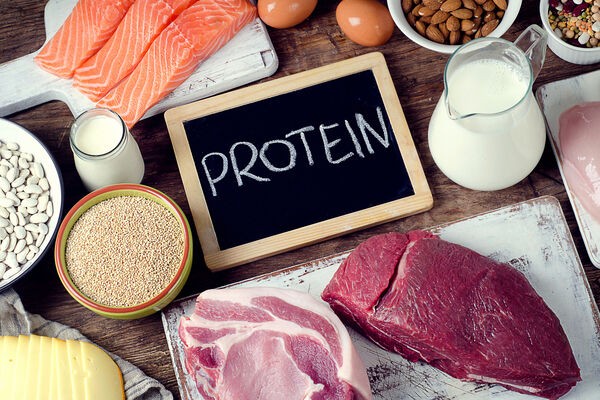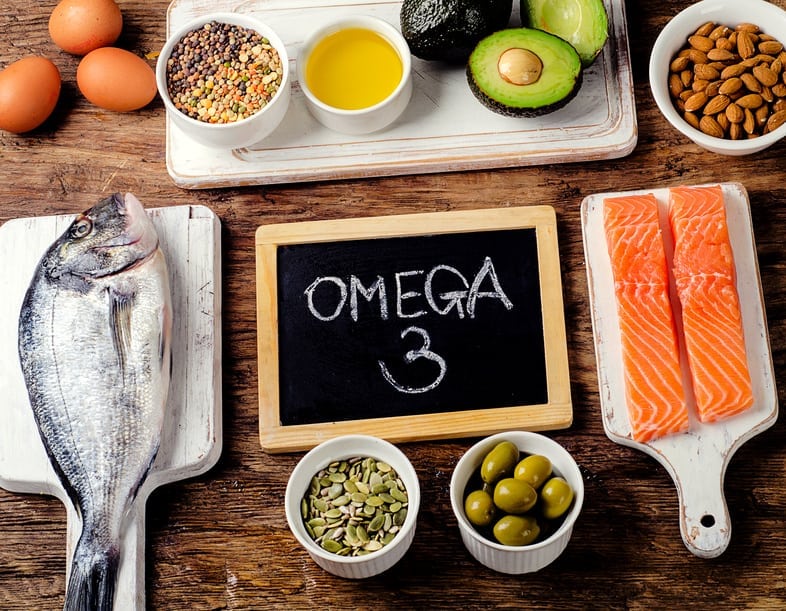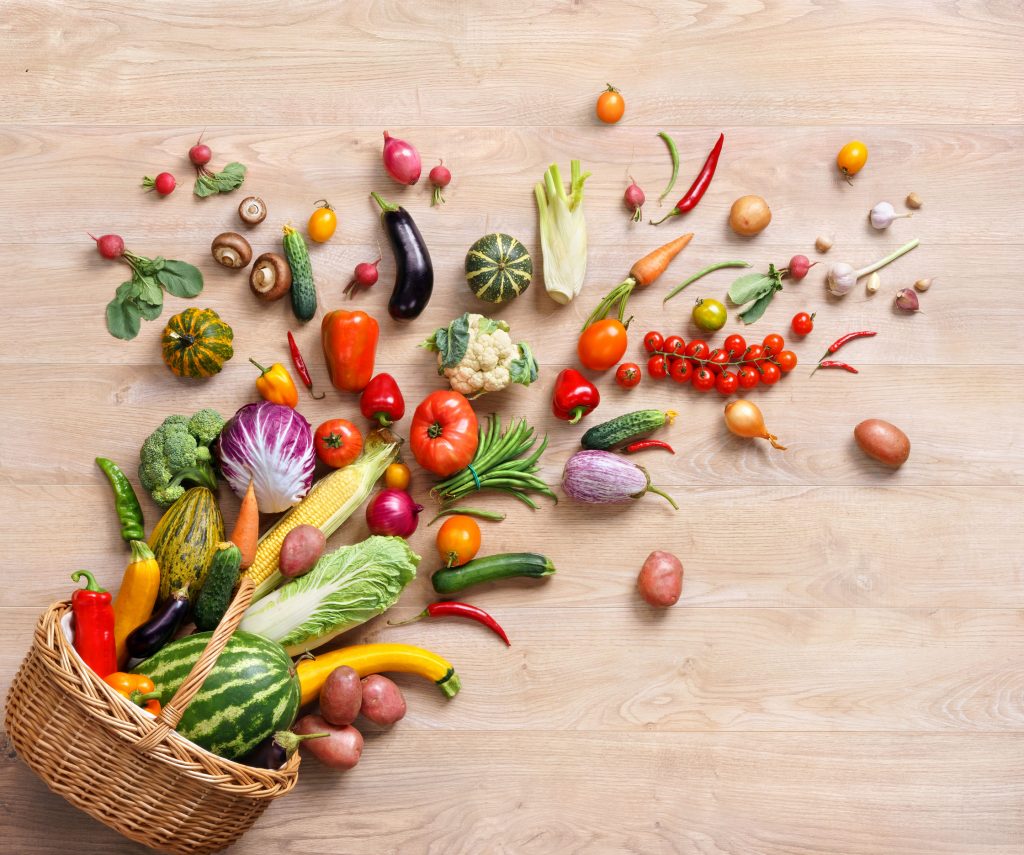What are nutrients?
“Nutrients” is another word for nutrients. By that, we mean components of food that you need to support your health. In this article, we’ll discuss the different types of nutrients that exist and the role they play in your body. Of course, we’ll also let you know how to ensure you’re getting enough of all the essential nutrients. We’ll cover:
- which nutrients are considered essential nutrients
- the distinction between macronutrients and micronutrients
- the different macronutrients and the foods they’re found in
- the different types of micronutrients and which foods are good sources
- how to ensure your diet contains enough essential nutrients
What are essential nutrients?
When we talk about “essential nutrients,” we mean substances that your body cannot produce on its own, or not in the right amounts. Your body relies on various foods to obtain these essential nutrients. Essential nutrients provide energy to your body and play a role in various bodily processes. This includes things like tissue growth and repair, bone and muscle health, and supporting your immune system.
Different types of nutrients
There are surprisingly many different nutrients. There are about 50 nutrients that support your body’s daily functioning (Netherlands Nutrition Center). That’s quite a lot! Therefore, we can’t discuss all of them individually. However, we can make this large group of nutrients more understandable by categorizing them. The most important distinction you can make among essential nutrients is between macronutrients and micronutrients.
What are macronutrients?
You might not be immediately familiar with the term “macronutrients,” but you’re probably familiar with the nutrients that fall under this category. These are proteins, fats, and carbohydrates. You need these macronutrients in larger quantities every day. Your daily requirement for macronutrients is usually measured in grams. Macronutrients are the building blocks of the body and provide the energy you need for your daily activities.
What are micronutrients?
The larger group of micronutrients includes vitamins, minerals, and trace elements. You need them in smaller amounts than macronutrients, but they still play an important role in supporting your health. Your daily requirement for micronutrients is usually measured in micrograms or milligrams, depending on the nutrient. In addition to the already mentioned essential nutrients, you also need water and fiber.
Which macronutrients are found in which foods?
If you want to ensure you’re getting enough macronutrients daily, it’s helpful to know where to find them in foods! This way, you can make choices based on your preferences and needs. Are you a vegetarian or vegan? Then it’s useful to know from which non-animal sources you can get your daily dose of protein. Keep in mind that a varied diet is generally recommended for your health.
Protein
According to the Voedingscentrum, the daily protein requirement for a healthy individual is around 0.83 grams per kilogram of body weight. For example, someone weighing 60 kilograms would need about 50 grams of protein per day, while someone weighing 70 kilograms would need 58 grams per day. Vegetarians and vegans, pregnant or breastfeeding women, and children might need a bit more protein per day. This can also apply to people who engage in intensive strength or endurance sports, or those with certain health conditions.
Proteins are involved in various bodily processes. They contribute to the growth and maintenance of your muscle mass, support muscle recovery after physical activity, and help maintain strong bones.
Your body can extract proteins from both animal and plant sources. Some animal sources of protein are:
- meat
- poultry (such as chicken and turkey)
- fish
- eggs
- dairy products
- cheese

Examples of plant-based sources of protein include:
- nuts
- legumes (beans, peas, lentils, for example)
- tofu and tempeh
- grains and grain products (such as bread, pasta, and couscous)
Fats
Fats are also essential nutrients. First and foremost, they are an important source of energy. Each gram of fat provides you with 9 calories (compared to 4 calories per gram of protein or carbohydrates). Fats that your body doesn’t use immediately as an energy source are stored as body fat. In this form, fat serves as an energy reserve and a means of protecting your organs and keeping your body warm in cold conditions. Body fat indeed serves a purpose. Consuming fats with your meals helps you feel full for longer because fats stay in your stomach for a relatively extended period. The advantage of this is that you’re less likely to snack between meals. Additionally, some fats also provide vitamins, such as vitamin A and vitamin D.
Different types of fats
Fats used to have a bad reputation mainly due to their high calorie content, often seen as “fattening.” Nowadays, a distinction is made between different types of fats. Some can be harmful to your body (such as trans fats), while others can have positive effects (like unsaturated fats and omega-3 fatty acids). Regardless, it’s important not to consume too much fat. Unsaturated fats can be found in:
- vegetable oils like sunflower oil and olive oil
- soft margarine or spreads for bread
- liquid margarine or cooking oils
Sources of omega-3 fatty acids include:
- fish, shellfish, fish oil/krill oil/algae oil
- flaxseed oil, rapeseed oil, soybean oil
- eggs and some types of meat

Carbohydrates
Carbohydrates are also essential macronutrients. They can be categorized into sugars, fiber, and starch and are present in a wide variety of foods.
Sugars
Every carbohydrate is made up of sugar molecules, which can be one or a group of sugars. These sugar molecules are also called “saccharides.” Monosaccharides contain only one sugar molecule. Glucose, fructose, and galactose belong to this group. They are found in fruits (juice) and certain types of vegetables (juice), for example. Some carbohydrates contain 2 sugar molecules (disaccharides). Familiar examples include lactose (from milk) and sucrose (from sugar beets or sugarcane). Oligosaccharides consist of 3 to 9 sugar molecules, and polysaccharides consist of more than 9 sugar molecules. These come from starch in grains, tubers (like potatoes), and legumes. Ultimately, they are broken down into glucose in your body, sometimes in combination with fructose or galactose.
Different types of carbohydrates
Monosaccharides or carbohydrates that can be broken down into monosaccharides in your body serve as the energy sources for your body. They are quickly absorbed into your blood and used by tissues that can burn them for energy. Glucose that can’t be immediately burned is temporarily stored in the liver and muscles as glycogen, but in limited amounts. If your body has enough fuel and can’t store more glycogen, the excess is stored as fat. There are also carbohydrates that your body cannot digest but still serve an important function for your intestines. These are known as fiber.
It’s important that your diet contains the right amount of carbohydrates—neither too much nor too little. Consuming enough carbohydrates is also important for the functioning of your brain. Eating at least 130 grams of carbohydrates per day contributes to the maintenance of normal brain function.
Out of the total recommended daily calorie intake (which you can check here), carbohydrates should make up a minimum of 40% and a maximum of 70%. If 70% of your daily calorie intake comes from carbohydrates, ensure that the remaining 30% consists of 20% fats and 10% proteins. This aligns with the nutritional recommendations from the Voedingsraad (Dutch Nutrition Council) regarding macronutrients.
The best choice is to opt for complex carbohydrates that not only contain sugars, starch, and fiber but also a variety of other healthy nutrients, such as:
- whole grain products
- potatoes
- vegetables
- fruit
- legumes
While foods like cookies, candy, and soda do indeed contain carbohydrates, primarily in the form of simple sugars like glucose and fructose, they are low in other healthy nutrients. Therefore, it’s better to consume as little of these as possible.
Micronutrients
Micronutrients can be divided into vitamins, minerals, and trace elements. With a few exceptions, your body cannot produce them on its own. Your body needs to obtain them from food. Micronutrients are found in a wide variety of foods, including plant-based products like vegetables, fruits, legumes, various types of oils, nuts, and seeds, as well as animal products like milk, eggs, meat, and fish.
Micronutrients themselves aren’t a form of fuel for the body, but they are important for converting energy from macronutrients. They also play a role in numerous bodily and mental processes. Below, you’ll find 18 vitamins, minerals, and trace elements that support your health when consumed in sufficient amounts. (You can find an overview of the recommended daily amounts of various vitamins here.) For each micronutrient, we’ll mention important sources, as well as juices from our assortment that you can choose as sources of these nutrients.
Vitamin A
Vitamin A is found in foods such as meat, fish, dairy products, and margarine. It also exists in the form of provitamin A (also known as beta-carotene) in foods like carrots, sweet potatoes, pumpkin, and various yellow and orange fruits, as well as some green leafy vegetables. Your body converts provitamin A into vitamin A. Our juice Fresh is rich in provitamin A and contains 284% of the recommended daily amount of this vitamin. Our juice Energy also contains a substantial amount of vitamin A.
TIP: On the page of each juice on our website, you can immediately learn more about how vitamin A and other vitamins and minerals support your health!
Vitamin B1
Vitamin B1 is found in foods like nuts, grain products, potatoes, dairy (products), meat, vegetables, and fruit (such as pineapple, grapes, and berries). Our juice Fuel is rich in vitamin B1. Wild is a good source of vitamin B1, as is our juice Reboot.
Vitamin B2
Vitamin B2 can be found in foods like fish, meat, eggs, nuts, seeds, seaweed, green leafy vegetables, and various types of cabbage. Our juice Wild is a source of vitamin B2, as is our juice Fuel. Vitamin B2 is also considered an antioxidant, along with vitamin C, E, copper, manganese, and zinc, among others.
Vitamin B3
Vitamin B3 can be found in foods like meat, fish, nuts, seeds, and mushrooms. Our juice Power is a source of vitamin B3.
Vitamin B5
Vitamin B5 can be found in foods like seeds, cheese, meat, eggs, mushrooms, lentils, and avocado. Our juice Fuel is a source of vitamin B5.
Vitamin B6
Vitamin B6 can be found in foods like seeds and nuts, meat, fish, and rice. Our juice Boost is a source of vitamin B6.
Folate (vitamin B11)
Folate is found in various green leafy vegetables like spinach, kale, arugula, and lettuce. It’s also present in fruits, whole grains, and in smaller amounts in meat and dairy products. Our juice Recharge is rich in folate, as is our juice Fuel.
Vitamin C
Vitamin C is present in various vegetables and fruits, particularly bell peppers, Brussels sprouts, kale, blackberries, strawberries, and kiwi. Even herbs like parsley can be rich in this vitamin. Our juice Sunny is very high in vitamin C, as is our juice Power. These provide you with 116% and 115%, respectively, of your daily recommended amount of this vitamin.
Vitamin E
Vitamin E is primarily found in seeds, nuts, and oils, but also in eggs, spinach, and avocado. Our pure and potent tomato soup is rich in vitamin E, as is our green shot Purify.
Vitamin K
Vitamin K is mainly found in (green) leafy vegetables, such as kale, chard, spinach, but also in Brussels sprouts, broccoli, watercress, and parsley. Our juice Detox is very rich in vitamin K, containing a whopping 532% of the recommended daily amount of this vitamin. However, most of our juices contain vitamin K.
Potassium
Potassium is present in vegetables and fruits like apricots, spinach, and purslane. It’s also found in cocoa and various types of nuts and seeds, such as almonds, pistachios, flaxseeds, and pumpkin seeds. Our juice Support is rich in potassium, as are our Recover, Energy, and many other juices!
Calcium
Calcium is mainly found in cheese, various seeds and nuts like sesame seeds, chia seeds, flaxseeds, almonds, and hazelnuts, as well as green leafy vegetables like kale, spinach, and purslane. Just one bottle of our Detox juice provides you with 100% of your daily recommended amount of calcium.
Iron
Iron is primarily found in liver, cocoa, sesame seeds, soybeans, pumpkin seeds, chia seeds, and Brazil nuts. Vegetables can also be high in iron. Our juice Fuel is a good source of iron, as is our Detox juice.
Iodine
Iodine is found in various types of fish and shellfish, as well as in bread, eggs, endive, and bananas. Our Detox contains many healthy nutrients and is also a source of iodine.
Copper
Copper is found in foods like oysters, liver, cocoa, and various nuts and seeds, such as cashews, Brazil nuts, sunflower seeds, hazelnuts, and pine nuts. The juice Wild provides an impressive 90% of your recommended daily amount of copper. The Recover and Energy juices are also good sources of copper.
Magnesium
Magnesium is found in various nuts and seeds, like pumpkin seeds, sunflower seeds, Brazil nuts, sesame seeds, chia seeds, and peanuts. Cocoa is also rich in this mineral. Additionally, you can find it in various vegetables. For example, our juices Fuel and Recover are good sources of magnesium.
Manganese
Manganese is present in seeds, seeds, and nuts, such as pine nuts, pumpkin seeds, pecans, and hazelnuts. Grains like oats, rye, and teff are also sources of manganese, as are our juices Detox, Sunny, Fuel, and Recover. The juice Wild is rich in manganese.
Zinc
Zinc is present in foods like hemp seeds, flaxseeds, pumpkin seeds, pine nuts, and cocoa. Our wheatgrass shot Purify is a source of zinc, as is our juice Wild.
You can find more information about the nutritional value of various types of food here!
Vegetable juice as a source of micronutrients
If you consume little to no meat, fish, or other animal products, the above list shows that it’s important to ensure that you eat enough nuts, seeds, grains, and legumes. These foods contain many important vitamins and minerals. Vegetables and fruits are also excellent sources of micronutrients. It’s no wonder that consuming enough vegetables is recommended by the Voedingscentrum.
Drinking vegetable juices is also a good way to ensure that you get your vitamins and minerals. Because we make our juices with fresh, organic, seasonal vegetables and fruits, they are generally rich in healthy nutrients. Slow juicing and freezing help preserve the original vitamins and minerals from fruits and vegetables. You can learn more about this in our blog about the benefits of vegetable juice for your health.

